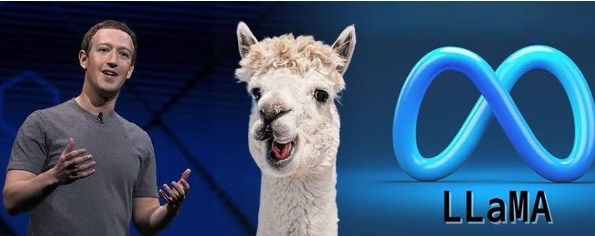OUTLINE:
Meta's Llama Challenge OpenAI with a New Large Language Model?
 449
449Meta, the parent company of Facebook, is intensively developing a new large language model aimed at rivaling OpenAI's most advanced models. According to reports, this project, currently codenamed 'Large Language Model,' is set to be ready by next year and is expected to be several times stronger than Meta's existing Llama 2 model. Llama 2, launched in July as a commercial language model, was designed to compete with OpenAI's ChatGPT and Google's Bard.


The development of this new language model signifies Meta's commitment to pushing the boundaries of AI technology and making it accessible to a wider audience. By increasing the model's size and potentially open-sourcing it, Meta aims to empower developers and businesses with powerful AI capabilities. This move not only demonstrates Meta's dedication to innovation but also solidifies their position as a leader in the AI industry.
Meta has been actively involved in releasing groundbreaking AI models. Earlier this year, on June 14th, they introduced I-JEPA, a "human-like" AI model based on the key elements of LeCun's World Models vision. I-JEPA possesses the ability to understand abstract representations in images and acquire common sense through self-supervised learning, all without requiring additional artificially crafted knowledge.
Meta also unveiled Voicebox, a revolutionary speech synthesis system based on their innovative approach called flow matching. With Voicebox, Meta can synthesize speech in six languages and perform operations such as denoising, content editing, and audio style conversion.

Furthermore, Meta has made significant strides in the development of embodied AI agents. Through Language-Guided Skill Coordination (LSC), their General Embodied AI agents enable robots to freely move and manipulate objects in partially pre-mapped environments. This technology opens up possibilities for practical applications in various real-life scenarios.
Meta's commitment to multimodal models is evident in their release of ImageBind, the first AI model capable of binding information from six different modalities. ImageBind connects objects in photos with their corresponding sounds, 3D shapes, temperature, and motion, providing machines with a comprehensive understanding of the world.
Collaborating with CMU_Robotics, Meta AI has also co-developed the RoboAgent, which allows robots to acquire a wide range of non-trivial skills and apply them to hundreds of real-life scenarios.
In summary, Meta's intensive development of a new large language model underscores their ambition to strengthen their position in the growing conversational AI market, currently dominated by OpenAI and Google. By creating a model several times more powerful than Llama 2 and potentially open-sourcing it for free commercial use, Meta aims to shape the future of AI and drive progress within the open-source AI community. As we eagerly await the launch of this new language model next year, it is evident that Meta is continuing to push the boundaries of AI technology and solidify their role as an industry leader.

Disclaimer: The views and opinions expressed by individual authors or forum participants on this website do not represent the views and opinions of Chipsmall, nor do they represent Chipsmall's official policy.

share this blog to:

